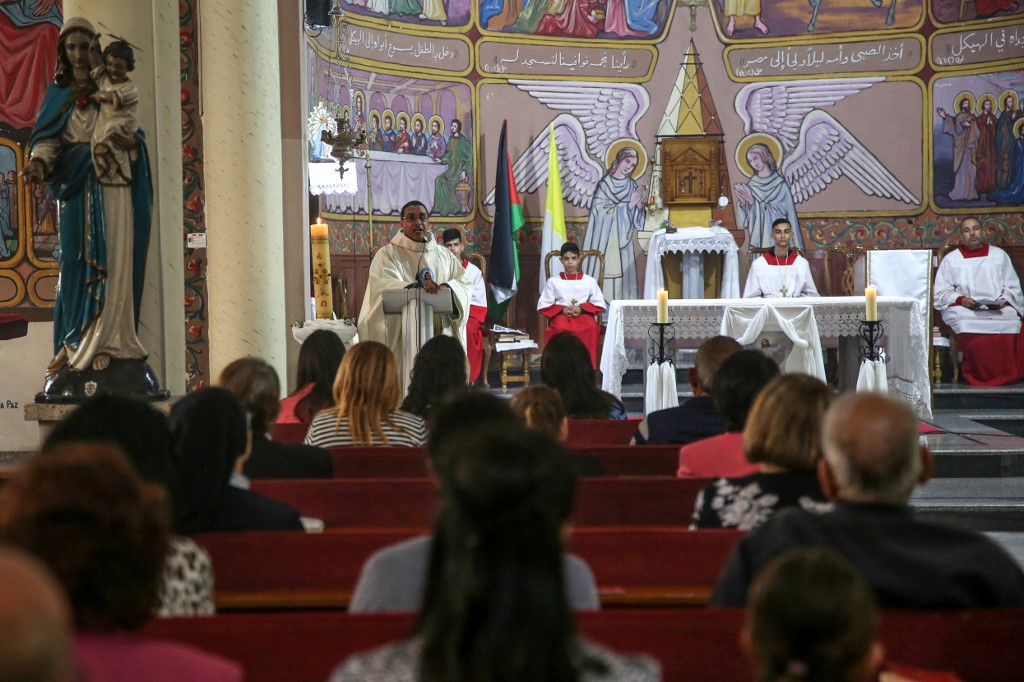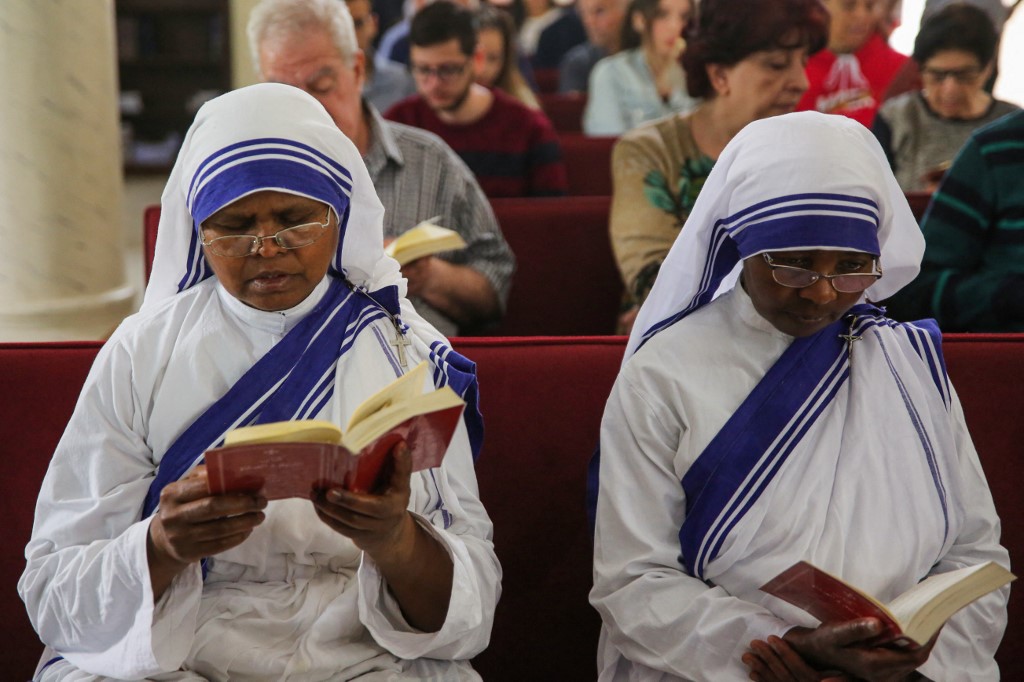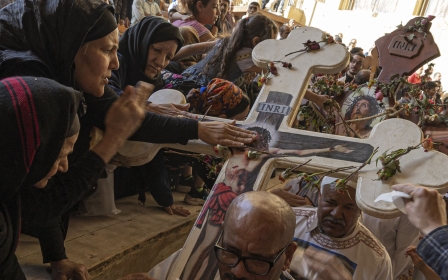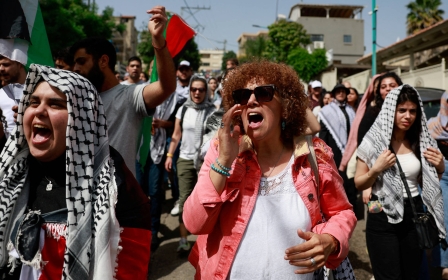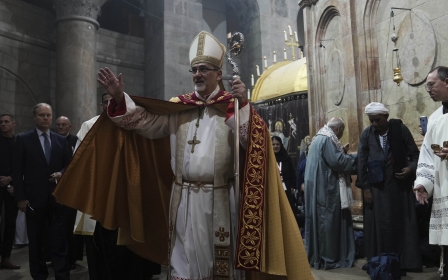Palestinian Christians mark sombre Easter in Gaza as Israel jets pummel enclave
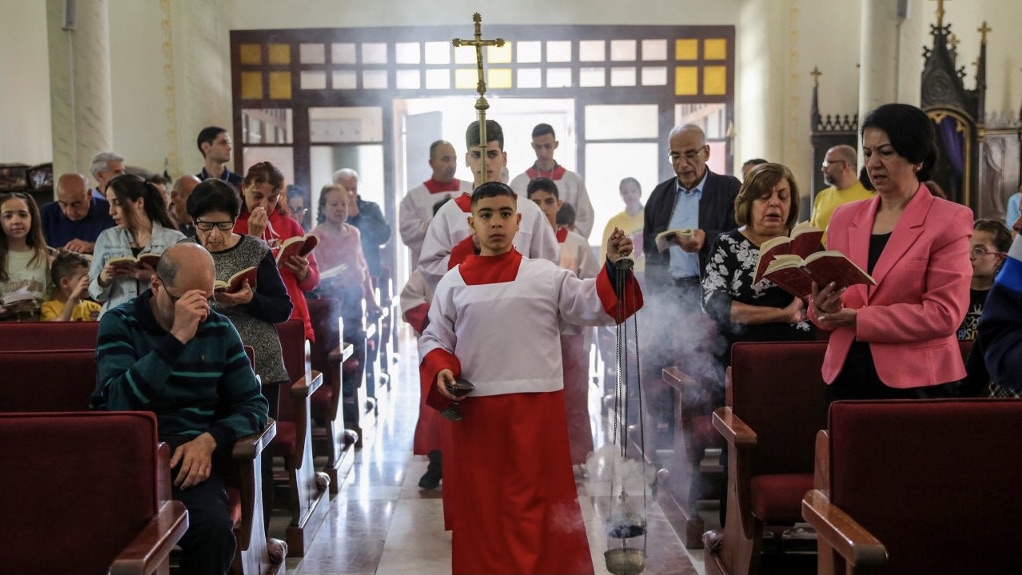
Palestinian Christians marked a sombre Easter in northern Gaza on Sunday, as Israeli forces continued to lay siege to the enclave's largest hospital and bombed several targets across the embattled territory.
Around 100 Christians gathered by candlelight on Saturday night at the Holy Family Church in Gaza City, in an area where the global authority on food security says a full-scale famine is imminent.
The church has become a sanctuary for those displaced by Israeli bombing and currently hosts more than 500 Palestinians, whilst some 300 others are believed to be staying at the nearby Saint Porphyrius church.
Both churches have been attacked by Israeli forces in the last six months of war, with an Israeli bombing raid in late October killing 18 people at the Saint Porphyrius church.
The church is also a short drive from al-Shifa hospital which has been under siege since 18 March when Israeli forces stormed the compound in Gaza City. An estimated 30,000 people including displaced civilians, wounded patients and medical staff are known to be sheltering there.
The atmosphere in Jerusalem was also heavy, with few people at the sacred sites that are usually crowded at Easter.
Even the main Catholic Easter Sunday service at the Holy Sepulchre Church, built on what is said to be the tomb of Jesus, was not full.
Sister Angelica, an Italian nun from Perugia, said she was heartbroken to see so few people at the ancient church, regarded as Christianity's holiest shrine.
"We were so few. It breaks my heart," she told the AFP news agency. "But we are like the first Christians, they were few too."
She said pilgrims were staying away because of the "suffering and death" in Gaza.
'People are afraid'
Mother and daughter Ewa, 60, and Kasia, 33, from Warsaw in Poland, veterans of 10 Holy Land pilgrimages, said they had never seen the sacred shrines so quiet.
"It is no wonder with the war," said Kasia, who spoke on condition her full name not be published. "It is terrible. They are killing children [in Gaza]. It is so wrong."
A Nigerian Pentecostal pastor from Agege, near Lagos, said that in 30 years of visits he had never seen "the Holy City so empty."
"There were more priests than people in the Holy Sepulchre Church on Holy Thursday. People are afraid," he added.
Shopkeeper George Habib in the Old City said Easter, usually his busiest period, "is a disaster".
"There is no one here. It is worse than Covid... It feels that this war is never going to end."
The ongoing war in Gaza began when a Hamas-led assault on Israel killed at least 1,140 Israelis. Israel retaliated by relentlessly bombing the Palestinian enclave and launching a ground invasion, killing at least 32,000 Palestinians and destroying large swathes of the area's civilian infrastructure.
Israeli officials have previously stated their intent to continue the war until they are able to decisively defeat Hamas, claiming that not even the International Court of Justice (ICJ) will stop them.
Israel is currently facing accusations of breaching the Genocide Convention at the ICJ, in response to a case filed by South Africa. In the interim, the court ordered Israel to take measures to prevent genocidal acts in Gaza, and allow the delivery of humanitarian aid.
Last week, UN human rights expert Francesca Albanese submitted a report to the UN Security Council stating that Israel had committed several acts of genocide in its war on Gaza and that it should be placed under an arms embargo.
Middle East Eye propose une couverture et une analyse indépendantes et incomparables du Moyen-Orient, de l’Afrique du Nord et d’autres régions du monde. Pour en savoir plus sur la reprise de ce contenu et les frais qui s’appliquent, veuillez remplir ce formulaire [en anglais]. Pour en savoir plus sur MEE, cliquez ici [en anglais].


